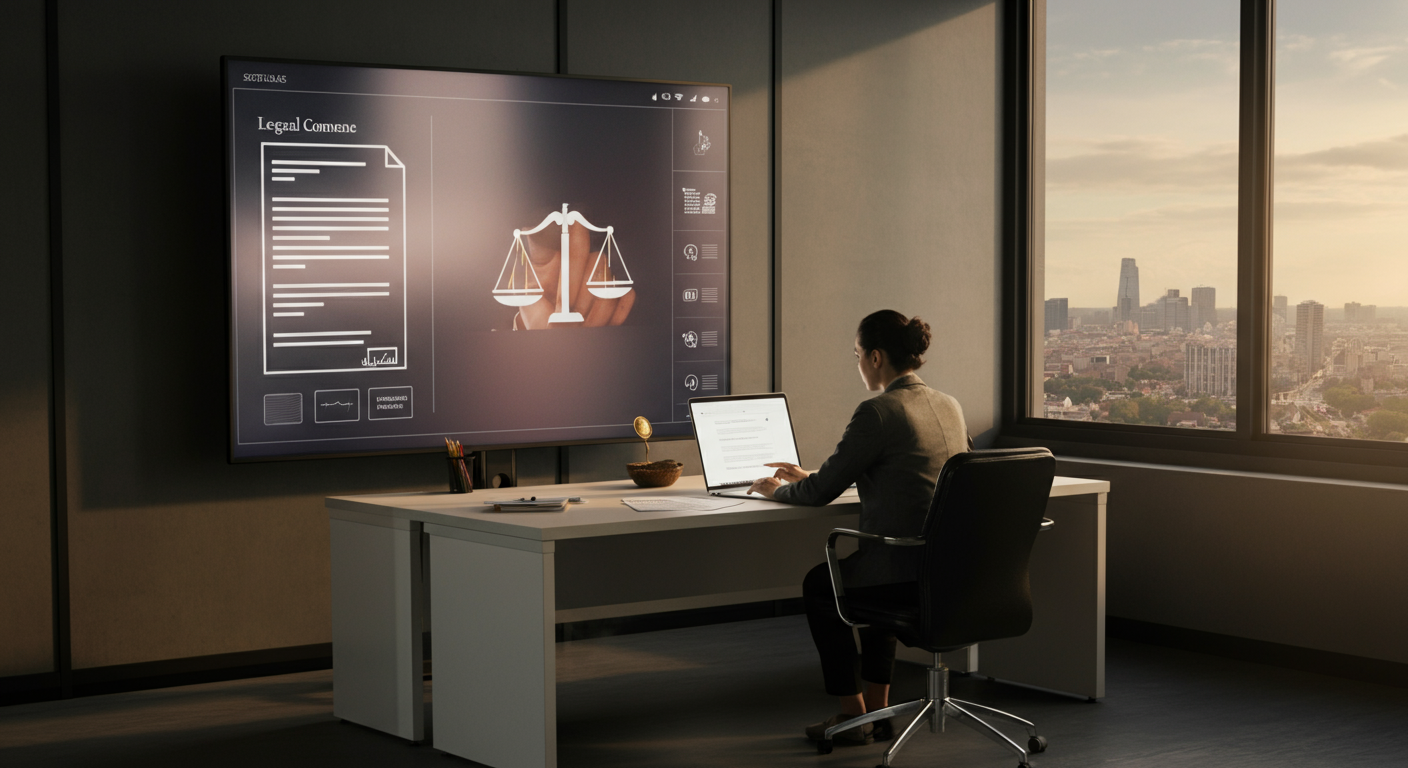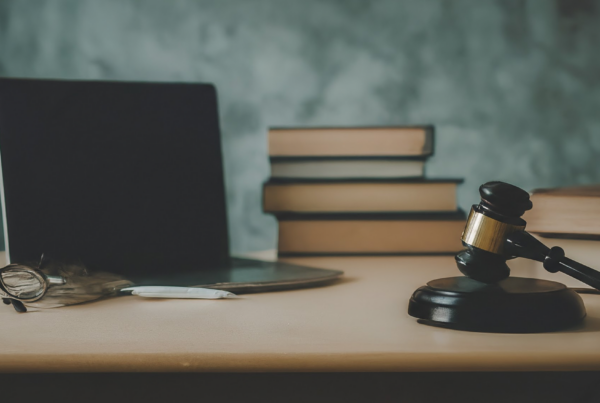In today’s fast-paced digital landscape, the legal aspects of video programming have become more crucial than ever. Businesses in the hospitality and entertainment sectors, such as casinos, restaurants, and bars, are increasingly leveraging video content to captivate their audiences and enhance customer experiences. However, navigating the complex legal landscape surrounding commercial video programming can be daunting. Understanding these legal intricacies is essential not only for compliance but also for ensuring smooth operations and protecting your brand.
At DLM Media, we recognize the importance of high-quality content and the legal frameworks that govern it. Our mission is to provide businesses with reliable commercial video programming solutions, ensuring they can offer exceptional viewing experiences without the hassle of legal complications. Whether you’re managing a single location or a multi-location organization, grasping the legal requirements and licensing obligations is vital for your success.
This blog post will delve into the key legal considerations and licensing requirements that every business should be aware of when implementing video programming. From understanding copyright laws to navigating licensing agreements, we’ll cover the essential topics that will help you stay compliant and avoid potential pitfalls. Join us as we explore the critical legal aspects of video programming that can make or break your business’s entertainment strategy.
Ready to dive deeper into the world of video programming legality? Let’s start by examining the fundamental principles that govern this dynamic industry.
Understanding Key Legal Requirements in Video Programming
In the realm of commercial video programming, understanding the legal aspects is crucial for businesses aiming to stay compliant and avoid potential pitfalls. Whether you’re operating a casino, restaurant, or bar, navigating the complex legal landscape involves more than just acquiring content. It requires a comprehensive understanding of copyright laws, licensing agreements, and regulatory standards that govern video programming.
Businesses must be aware of the essential legal requirements to ensure smooth operations and protect their brand. From obtaining the necessary licenses to adhering to copyright laws, each step is vital in maintaining legal compliance. Let’s delve into these key requirements and explore the common challenges businesses face in this domain.
Copyright Laws and Their Impact on Video Programming
Copyright laws play a pivotal role in video programming, as they protect the creators’ rights and ensure that content is used legally. Businesses must understand that using copyrighted material without permission can lead to legal disputes and financial penalties. According to the Legal Information Institute, copyright infringement is a serious offense that can result in hefty fines and damage to a company’s reputation.
To navigate these challenges, businesses should focus on obtaining the necessary permissions and licenses. This includes synchronization licenses for music and master use licenses for video content. By doing so, companies can legally use and distribute content, avoiding potential legal issues.
Licensing Agreements: Ensuring Legal Use of Content
Licensing agreements are essential for businesses that wish to use video content legally. These agreements provide the rights to use, reproduce, and distribute content, ensuring compliance with copyright laws. For instance, a synchronization license allows businesses to use music in their videos, while a master use license permits the use of specific recordings.
It’s crucial for businesses to negotiate and understand the terms of these agreements thoroughly. This includes knowing the duration, scope, and limitations of the license. By doing so, businesses can avoid potential legal challenges and ensure they are using content within the legal framework.
Regulatory Standards in Video Programming
Regulatory standards are another critical aspect of video programming that businesses must adhere to. These standards ensure that content is accessible and compliant with federal laws. For example, the Federal Communications Commission (FCC) mandates closed captioning for video programming to ensure accessibility for individuals with hearing impairments.
Businesses must stay updated with these regulations and implement necessary measures to comply. This includes providing closed captions and ensuring that all video content meets the required accessibility standards. By doing so, businesses can enhance their customer experience and avoid legal repercussions.
Understanding these key legal requirements is essential for any business involved in video programming. By adhering to copyright laws, securing the necessary licenses, and complying with regulatory standards, businesses can operate smoothly and protect their brand from legal challenges.
Navigating Legal Challenges in Video Production
Video production is an exciting field, but it comes with its fair share of legal challenges. Understanding and navigating these challenges is crucial for businesses in the hospitality and entertainment industries, such as casinos, restaurants, and bars. By addressing common legal issues like liability and intellectual property disputes, businesses can safeguard their operations and ensure compliance with the legal aspects of video programming.
From liability concerns to intellectual property disputes, the legal landscape of video production is complex. Businesses must be proactive in mitigating risks and protecting their interests. This section will explore practical strategies to avoid legal pitfalls and emphasize the importance of contracts and release forms in video production.
Understanding Liability Issues in Video Production
Liability is a significant concern in video production, especially when filming on location or involving third parties. Businesses must ensure they have adequate insurance coverage to protect against potential claims. General liability insurance can cover accidents or injuries that occur during production, while errors and omissions insurance can protect against claims of negligence or mistakes in the final product.
Consider a scenario where a business is filming a commercial in a busy restaurant. If a customer trips over a cable and gets injured, the business could be held liable. Having the right insurance in place can mitigate financial risks and provide peace of mind.
Addressing Intellectual Property Disputes
Intellectual property disputes can arise when using copyrighted material without proper authorization. To avoid these issues, businesses should secure the necessary licenses for music, video clips, and other content. Synchronization and master use licenses are essential for legally incorporating music into videos.
Imagine a business using a popular song in their promotional video without obtaining a license. This could lead to costly legal disputes and damage to the company’s reputation. By understanding and respecting copyright laws, businesses can avoid such pitfalls.
The Importance of Contracts and Release Forms
Contracts and release forms are vital tools for protecting businesses in video production. Contracts outline the terms and conditions of a project, ensuring all parties understand their responsibilities. They can also include clauses for indemnification, limiting liability for unforeseen issues.
Release forms, on the other hand, grant permission to use footage of individuals or private property. Without these forms, businesses risk facing lawsuits for unauthorized use of someone’s likeness or property. For instance, filming in a private venue without a release form could result in legal action from the property owner.
By prioritizing contracts and release forms, businesses can navigate the legal challenges of video production more effectively. These documents provide a clear framework for collaboration and help prevent misunderstandings and disputes.
Best Practices for Legal Compliance in Video Programming
Ensuring compliance with the legal aspects of video programming is crucial for businesses in the hospitality and entertainment industries. This section provides actionable steps and best practices to help businesses maintain legal compliance in their video programming endeavors. By implementing these strategies, businesses can avoid legal pitfalls and ensure smooth operations.
Regular audits and staying informed about legal updates are essential components of maintaining compliance. Let’s explore the best practices that can help your business navigate the complex legal landscape of video programming.
Conducting Regular Legal Audits
Regular legal audits are a proactive measure to ensure that your video programming complies with current laws and regulations. These audits involve reviewing all aspects of your video content, including licensing agreements, copyright compliance, and accessibility standards. By conducting these audits, businesses can identify potential legal issues before they escalate.
To conduct an effective legal audit, consider the following steps:
- Review all existing licenses and agreements to ensure they are up-to-date and cover all necessary content.
- Check for any unauthorized use of copyrighted material and take corrective action if needed.
- Ensure compliance with accessibility standards, such as providing closed captions and audio descriptions.
Staying Informed About Legal Updates
The legal landscape of video programming is constantly evolving, making it essential for businesses to stay informed about the latest updates. This involves regularly monitoring changes in laws and regulations that may impact your video content. By staying informed, businesses can adapt quickly to new requirements and avoid potential legal challenges.
Here are some tips to stay updated:
- Subscribe to industry newsletters and legal publications that cover video programming regulations.
- Attend industry conferences and webinars to learn about the latest legal trends and updates.
- Consult with legal experts or hire a compliance officer to ensure ongoing adherence to legal standards.
Implementing Training Programs for Staff
Training programs are an effective way to ensure that all staff members understand the legal requirements related to video programming. These programs should cover key topics such as copyright laws, licensing agreements, and accessibility standards. By educating staff, businesses can foster a culture of compliance and reduce the risk of legal issues.
Consider the following when developing a training program:
- Include interactive sessions and real-life case studies to enhance understanding.
- Regularly update the training material to reflect changes in laws and regulations.
- Encourage staff to ask questions and provide feedback to improve the program.
By adopting these best practices, businesses can navigate the legal complexities of video programming with confidence. Regular audits, staying informed, and implementing comprehensive training programs are key to maintaining legal compliance and protecting your brand.
Ensuring Smooth Operations with Legal Compliance
In the dynamic world of commercial video programming, understanding the legal aspects is not just a necessity; it’s a strategic advantage. Throughout this blog post, we’ve explored the critical components that businesses, especially in the hospitality and entertainment sectors, need to grasp to ensure compliance and protect their brand. By staying informed about copyright laws, securing the appropriate licenses, and adhering to regulatory standards, businesses can mitigate risks and focus on delivering exceptional customer experiences.
Let’s recap some of the key takeaways:
- **Copyright Compliance**: Always secure the necessary permissions for any copyrighted material used in your programming. This includes music, video clips, and other content to avoid potential legal disputes and financial penalties.
- **Licensing Agreements**: Understand the terms and conditions of your licensing agreements thoroughly. This includes knowing the scope, duration, and limitations to ensure you’re using content legally and effectively.
- **Regulatory Standards**: Stay updated with legal standards, such as those set by the FCC, to ensure your content is accessible and compliant. This includes providing closed captions and meeting other accessibility requirements.
As you reflect on your current practices, consider conducting regular legal audits and implementing comprehensive training programs for your staff. These proactive measures can help identify potential issues before they escalate and foster a culture of compliance within your organization.
Finally, we encourage you to take action today. Review your current video programming practices, consult with legal experts if necessary, and ensure your business is operating within the legal framework. By doing so, you not only protect your brand but also enhance your reputation as a trusted leader in the industry. For more insights and solutions tailored to your business needs, visit DLM Media and explore our range of services designed to support your success in the ever-evolving landscape of commercial video programming.





